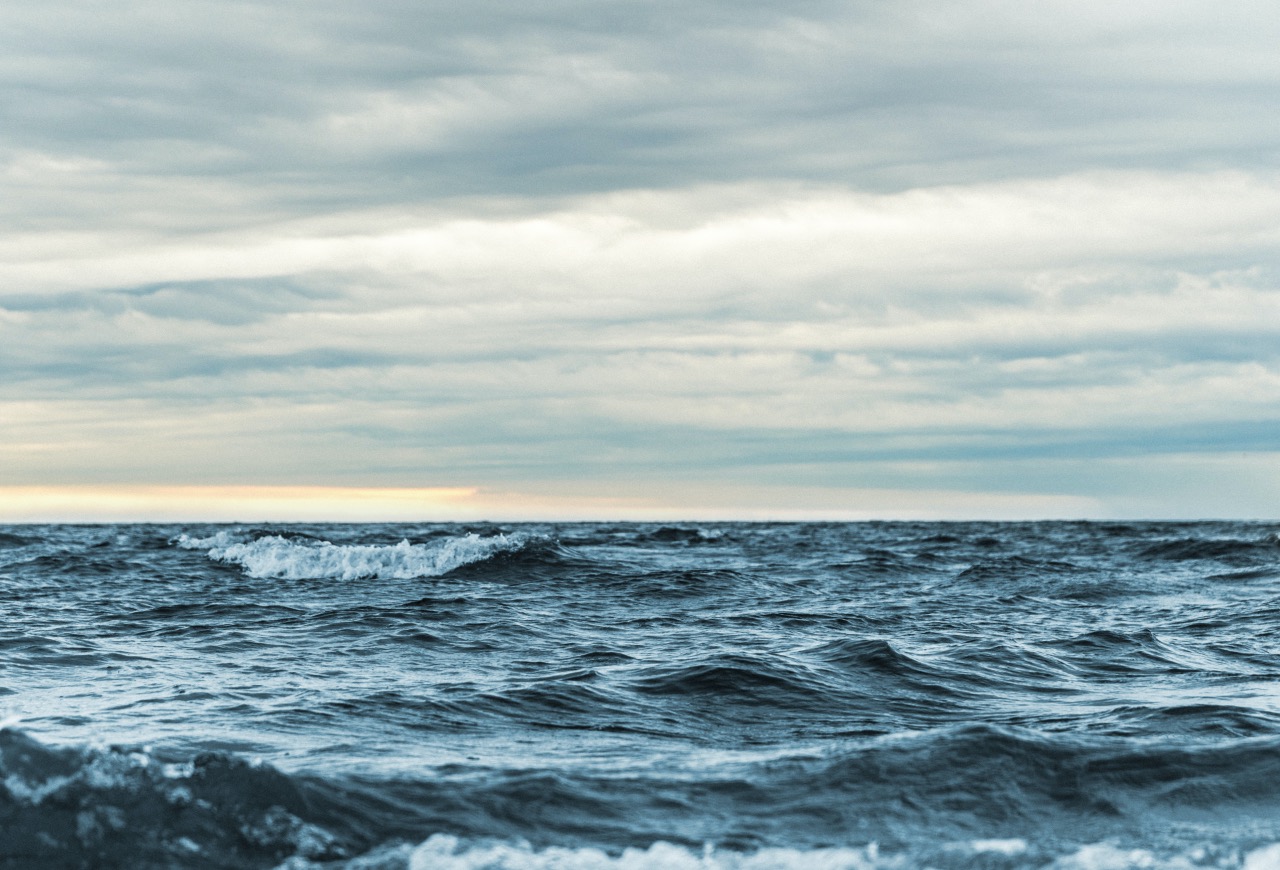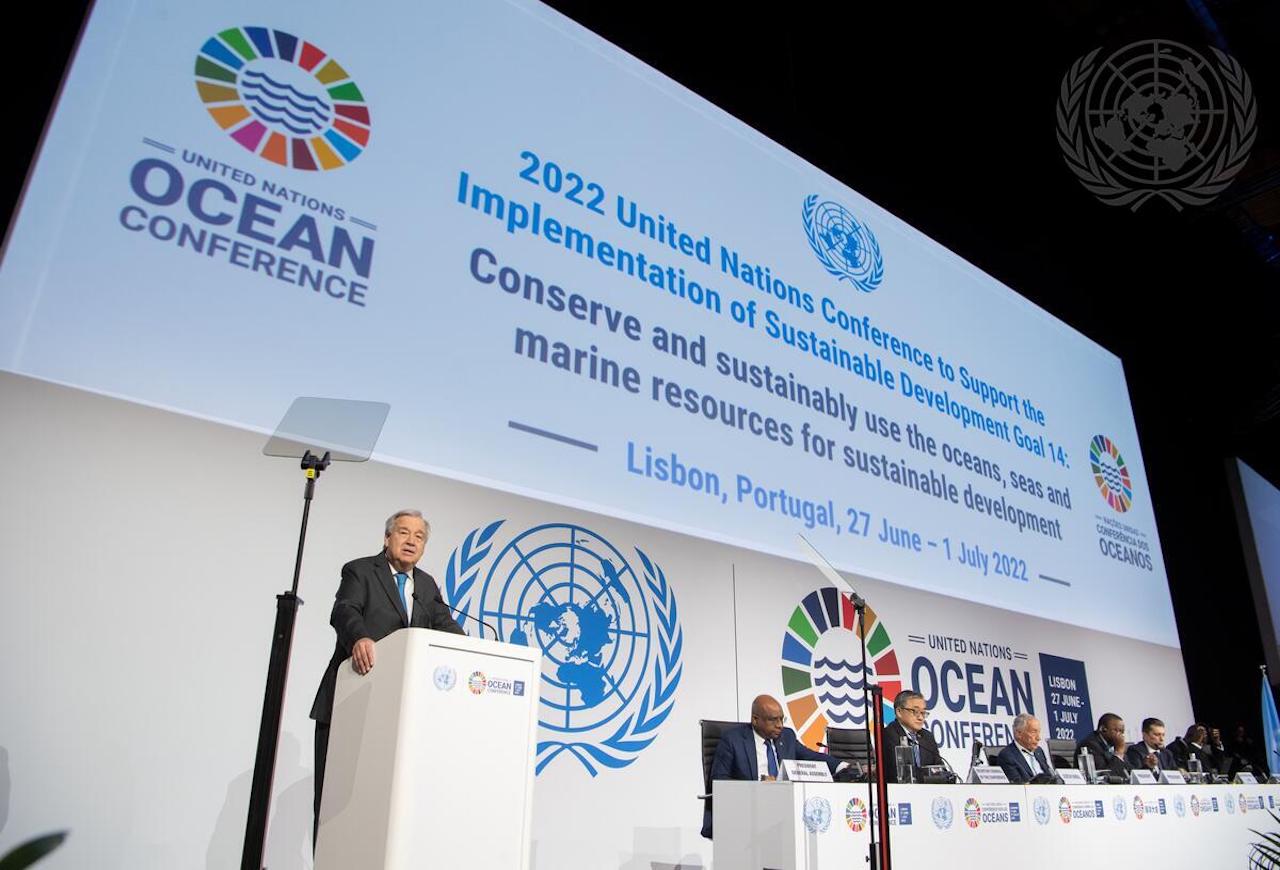Despite the “multidimensional threats” facing the worlds’ oceans, SDG 14 – life below water – continues to receive the least funding of any of the SDGs, delegates at the 2022 UN Ocean Conference in Lisbon heard

In brief
- The second UN Ocean Conference is taking place in Lisbon this week
- Despite the many threats facing the oceans, SDG 14 remains the most underfunded SDG
- Recent agreements including global plastics treaty are good news, but much more needed
- Christian Lim, manager of Blue Ocean Fund, calls for “a renewed sense of absolute urgency, tangible solutions, and the radical partnerships we need to scale them”.
Government leaders, marine scientists as well as representatives of civil society have gathered in Lisbon this week for a five-day conference to discuss the steps that need to be taken to protect, restore and responsibly use the world’s marine resources.
The 2022 UN Ocean Conference, hosted by the governments of Kenya and Portugal, is only the second global ocean conference of its kind, after a first conference was held in New York in 2017.
In his opening address on Monday, Kenyan president Uhuru Kenyatta spoke about the expectations of the conference and the need for a “shift in gear from proposals to action” driven by science, technology and innovation. He also highlighted the importance of leaving Lisbon “with a clear understanding of financing options and pathways”.
It is hoped that by the end of this year’s conference, which closes on Friday 1 July, countries will agree to a collective global action plan to address the ocean’s degradation and become signatories to a political declaration setting out specific science-based and innovative actions that need to be taken.
According to the UN, oceans produce 50% of the world’s oxygen, absorb 25% of all carbon dioxide emissions and capture 90% of the additional heat generated from those emissions, making them the lungs of the world but also the world’s largest carbon sink.
More than 3.5 billion people are also dependant on the ocean for their food security, and approximately 120 million people work directly in fisheries and aquaculture-related activities, the majority of whom live in developing countries.
SDG 14: More funding needed
But according to the World Meteorological Organization’s State of the Global Climate in 2021 report, sea level rise, ocean heat, ocean acidification and greenhouse gas concentrations set new records in 2021. Additionally, marine pollution is increasing at an alarming rate, and if current trends continue, more than half of the world’s marine species may be all but extinct by 2100.
In his address at the start of the conference, UN Secretary-General António Guterres, echoed the concerns of other speakers that despite the multidimensional threats facing the worlds’ oceans, SDG 14 continued to receive the least funding of any of the SDGs.

Guterres called on all stakeholders to invest in sustainable ocean economies for food, renewable energy and livelihoods in the face of an “ocean emergency”, pointing to record-high ocean temperatures, frequent storms, rising sea levels and degraded coastal ecosystems.
He also highlighted multilateral progress in responding to these crises, such as the recent global plastics treaty, the World Trade Organization’s agreement on ending harmful fishery subsidies, and the progress made on a legally binding instrument on the conservation and sustainable use of marine biological diversity of areas beyond national jurisdiction, but he added much more investment was needed.
‘Absolute urgency’
Speaking to Impact Investor from the UN Ocean Conference, Christian Lim, managing director at SWEN Capital Partners, which manages the Blue Ocean Fund, said the conference will have played its role if everyone came out of it with “a renewed sense of absolute urgency, tangible solutions, and the radical partnerships we need to scale them”.
He explained that the systemic threats facing the ocean required systemic responses and that much more innovation was needed: “Global treaties and regulations are much needed in that sense but innovation is also a powerful lever of systemic change. Yet, innovation has been grossly overlooked to achieve systemic impact on the ocean. Fortunately, ocean entrepreneurs are rising to the challenge across the globe, and investors are increasingly backing them.”
Lim pointed to the 1000 Ocean Startups coalition, which he explained was created to accelerate the impact of ocean innovators and investors, adding that reaching SDG 14 would require private capital at scale.
“It will require blue investments to become mainstream. We need pension funds, insurance companies and banks to invest in solutions for ocean health and not just philanthropy or public funds, which although critical, don’t have the scale of private capital,” he said.
“For this, investors need to develop expertise to better assess risks, standards for impact measurement need to be in place to facilitate their wok, and pioneering SDG 14 investors need to deliver compelling returns and impact to build a track record for the sector. This is what we at SWEN Capital Partners and many at 1000 Ocean Startups coalition are determined to do.”






